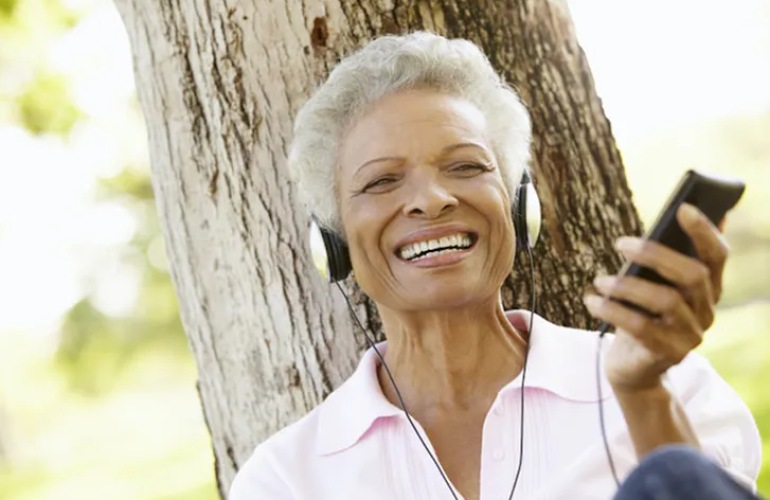Hear that? The halls are alive with the sound of music and for good reason. From the moment we are born, we’ve all got the music in us, but the power of music to enhance our lives as we age is particularly profound. The older we get, the more familiar tunes can positively impact our well-being, connecting us to past experiences, and uplifting our spirits.
In fact, music has proven to be a valuable therapeutic tool, widely used in the fight against age-related issues. Literally defined as the intentional use of music to bring about a specific physical, mental or emotional change, music therapy is a secret weapon hiding in plain sight. Easy access. Unlimited choices. And no matter how hard the rock, no pain the morning after.
With its established track record, music therapy has become an integral part of rehab programs in clinics, hospitals, halfway houses, and senior centers worldwide. Clearly when it comes to restoring or retaining key skills in a variety of areas, sometimes Madonna and Mozart can accomplish what medicine cannot.
Cognitive
Music therapy can help with memory retention and thought processing. Just hearing a song can evoke a memory even decades after the event. In the case of dementia patients, music from their childhood or young adult years has proven to be effective in obtaining a positive response and involvement, even when the patient can no longer communicate.
Speech
Studies show that music therapy can help older adults answer questions, make decisions and speak more clearly. It can help stroke victims speed up the process of recovering their verbal skills and ease depression and confusion, two common post-stroke side effects. Music can also slow the deterioration of language skills in Alzheimer’s patients.
Relaxation
Playing music can have a calming effect that eases stress and reduces agitation in the elderly. Slow songs like ballads and lullabies at bedtime can inspire a sound and peaceful night’s sleep.
Physical
Music therapy can get you moving. Who can resist dancing to the beat which helps promote coordination and endurance. Even if the only motion is foot tapping or hand clapping, music can get the blood flowing.
Social
Sharing a musical experience with a group can create an opportunity for bonding that helps ease loneliness and depression. Music of our own generation can encourage us to share memories and develop relationships.
You don’t have to have a problem or a prescription to reap the benefits of music therapy. Simply surround yourself with your favorite tunes anytime, anywhere and experience the magic. At the very least it will put a smile on your face and a song in your heart.
It will, it will...Rock You!

